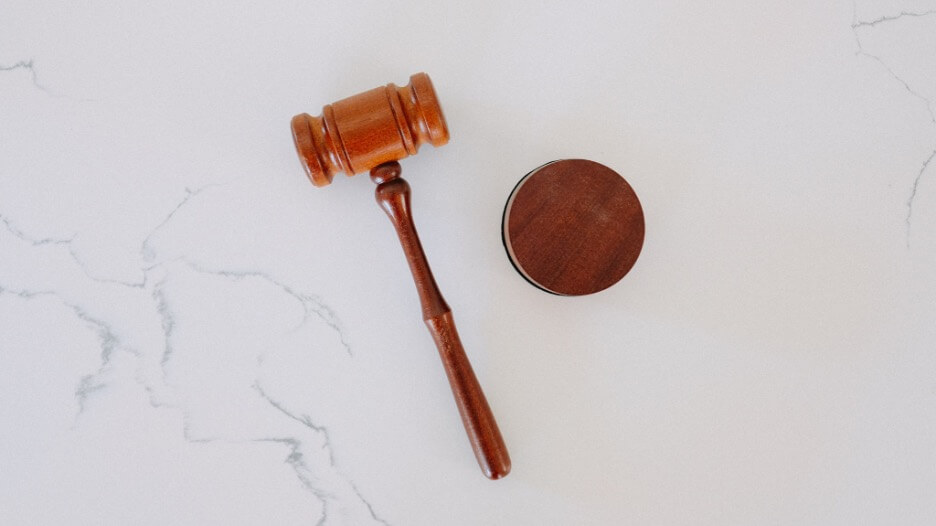A Fundamental Guide to Criminal Background Checks

Criminal background checks often form the foundation of a comprehensive candidate screening process. Given their role in confirming whether an applicant is a strategic fit for your organization, it is important to understand how these checks work, the information they disclose, and tips to ensure compliance.
Safety is a primary motivation for conducting background screenings. By exercising due diligence, you can uncover any instances of violent, aggressive, or otherwise unsafe behaviors exhibited by your potential candidate.
What is a criminal background check?
Criminal background checks involve searching various court records to reveal an individual's criminal history. The specific records examined depend on the nature of the vacant position, applicable federal and local laws, industry regulations governing background checks, and your organization's background screening guidelines. A few examples of criminal background checks that are commonly performed include federal criminal record checks, national criminal record checks, state criminal record checks, county criminal record checks, sex offender registry searches, global and domestic watchlist searches, and international criminal record searches. Here at Authentica, we offer a number of common criminal searches. Those include:
- Criminal Monitoring:
- Receive updates if new hits are found on Criminal Records Checkpoint, National Criminal Database Alias, Department of Corrections, Sex Offender Registry, and FBI Sex Offender Registry Searches.
- County Criminal Felony/7 Year Search
- Reports any felony convictions in the last seven years for the selected county.
- NY Statewide Search: Felony/Available Misdemeanor/7 Year Search
- Expands the County Criminal Background Check beyond felony convictions and includes misdemeanor convictions filed, when available, at the county seat.
- Criminal Records Checkpoint: 7 Year Criminal Search
- Broadens the scope of a background check by searching a database collection of public records compiled from courts and law enforcement agencies across the United States. This service is offered as an accessory to the County Criminal Background Check or the NYS Statewide Search.
- Canadian Province Upper Court: 7 Year Criminal Search
- A criminal search conducted at the Canadian Provincial Court level. There are 13 provinces available: Alberta, British Columbia, Manitoba, New Brunswick, Newfoundland & Labrador, Northwest Territories, Nova Scotia, Nunavut, Ontario, Prince Edward Islands, Quebec, Saskatchewan, and Yukon.
- Department of Corrections 7 Year Search
- Reports records of individual who have been or are currently incarcerated in a state facility. This service is offered as an accessory to the County Criminal Background Check. Rules and availability vary by state.
- Federal Statewide 7 Year Search
- Records of cases brought by the federal government against an individual for actions in violation of federal laws at the felony and misdemeanor levels.
- Sex Offender Registry
- Reports individuals on parole, probation or imprisoned for certain sex offenses. Availability and data vary by state.
- FBI Sex Offender Registry
- Data compiled by the Department of Justice providing a one-stop search of public sex offender registries of participating states. New York State should be searched as a separate state to ensure all three levels are reported.
- Department of Motor Vehicles Check
- Reports the current status of the candidate’s driver’s license (valid, suspended, revoked etc.) and the date and type of any convictions listed on the license.
- Sanctions & Debarred Persons List
- This U.S. Patriot Act compliant search will include a search of more than 120 separate U.S. and foreign sanctions and watch lists including OFAC.

What results do criminal background checks produce?
The results of a criminal background check are influenced by the type of court records searched, the relevant laws in the candidate's state, and the source of information used (consumer reporting agency or employer's search). The process must comply with the federal Fair Credit Reporting Act (FCRA), and additional state and local laws may regulate what criminal history information can be disclosed and considered for hiring decisions. Some states impose time limits on reporting certain offenses, such as felonies older than seven years, misdemeanors, or infractions after specific time frames like three or five years. Laws may also address the reporting of non-convictions in background checks.
A criminal record typically includes information such as felony and misdemeanor convictions, pending cases, and federal violations. Felony convictions involve severe crimes like murder and sexual assault, while misdemeanors are less serious offenses like vandalism and disorderly conduct. The record may indicate the case's outcome, such as conviction, acquittal, dismissal, or diversion programs. It may also reveal past incarceration, active warrants, and infractions. However, criminal record checks generally do not include juvenile offenses, as these records may be sealed or expunged when the individual reaches adulthood, often automatically in certain jurisdictions.
Where can I obtain a criminal background check?

Public court records hold most criminal history information that employers can access. However, the storage of these records varies across different sources. Conducting a criminal history check may involve searching a database or visiting a distant courthouse, which can be time-consuming. In addition, the complexity of searching for criminal records increases when hiring large groups of employees or individuals from different locations.
To streamline the process, ensure adherence to legal requirements, and obtain precise criminal history data, employers may opt for an FCRA-compliant consumer reporting agency (CRA) for their background screenings. Trusted CRAs, like Authentica, adhere to federal and local regulations on reporting and assist employers in aligning with the US Equal Employment Opportunity Commission (EEOC) policies regarding criminal background checks. Authentica automatically updates to match new state and local laws, including ban-the-box and fair hiring legislation, that dictate how employers can utilize criminal records in their employment decisions.
Conduct your criminal background checks with Authentica
Opting for a compliant screening service like Authentica will take the administrative burden of criminal background checks off your plate. Authentica searches hundreds of databases, law enforcement sources, and registries to provide comprehensive reports on criminal records. In addition, our streamlined platform features user-friendly tools that allow you to filter data based on your company's hiring policies. Our intuitive dashboard enables easy review of results, and our mobile-friendly portal enables candidates to access updates on the status of their background checks and receive support from our team.
Schedule a free demo with us today to take the first step toward hiring with peace of mind.
